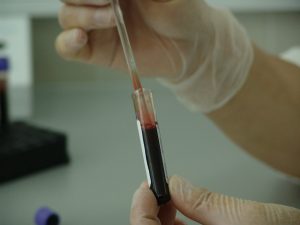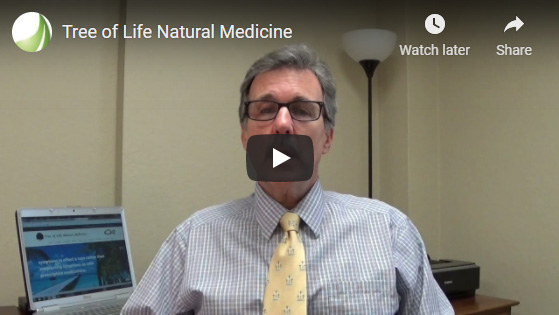It has been observed that some individuals are less susceptible to disease than others and that persons with certain blood types seem to have higher amounts of specific types of diseases. The connection between genetic markers on red blood cells and susceptibility to disease has long been known by anthropologists and physicians and has been used to trace population migrations around the globe. Serotyping can be used to determine the best diet for your personal health.
In theory, the different blood groups evolved in different parts of the world depending upon the type of environment, society and availability of food sources. For example:
Blood type O is generally co nsidered the oldest blood type showing a prevalence for hunter-gatherer cultures. Because of the high protein content of their diet, group O individuals tend to secrete higher amounts of stomach acid in order to digest the protein. Therefore, it is not surprising that group O individuals have a greater incidence of gastric ulcer disease than the other blood groups. Blood group O is about 46% of the American population.
nsidered the oldest blood type showing a prevalence for hunter-gatherer cultures. Because of the high protein content of their diet, group O individuals tend to secrete higher amounts of stomach acid in order to digest the protein. Therefore, it is not surprising that group O individuals have a greater incidence of gastric ulcer disease than the other blood groups. Blood group O is about 46% of the American population.
Blood group A was the next to evolve and emerged with the development of agricultural practices. Blood group A can be broken down into A2 and A1, with A2 having evolved sooner than A1. Blood group A is primarily associated with vegetarian food sources and individuals in that group secrete smaller amounts of stomach acid. Protein requirements are not any less than a group O person but the source is different. Group A2 persons can handle higher amounts of animal protein than A1 persons who look for their protein from vegetable and legume sources. Group A comprises 42% of the American population and group A1 comprises 80% of the group A individuals.
Blood group B was the next to evolve and is associated with cultures which use higher amounts of fermented dairy products. Persons who are blood type B tend to do better on diets which are high in dairy products and fish. Group B persons tend to have higher incidences of urinary tract diseases, such as kidney and bladder infections. This is due to an absence of the alloantibody B which conveys a greater protection against bacterial infections. Group B persons make up about 7% of the American population.
Blood group AB was the last to evolve and has been dubbed the “modern diet” blood type by D’Adamo & Powers. This is because an AB person combines the characteristics of groups A & B and therefore can tolerate a wider range of foods. Blood group AB persons can tolerate small amounts of many different foods where as the other blood groups will show a dietary or systemic reaction. Group AB persons tend to tolerate diets high in seafood, some dairy, nuts and grains. Blood group AB comprises 4% of the American population.
Importance of Serotyping
The reason blood grouping is important in determining a person’s diet is because of dietary lectins which are found in foods. If dietary lectins pass undigested into the intestinal tract, they are either recognized as self or non-self by the body’s immune system. Cooking eliminates a large percentage of dietary lectins but not all. Therefore, if digestion is compromised, a small percentage will make it through into the intestinal tract. It stands to reason that if raw foods are eaten, a greater percentage of lectins will pass into the intestinal lumen. However, if the proper amounts of food enzymes are present, this does not occur as the enzymes will complete the digestion.
Not all dietary lectins are incompatible. Depending upon the blood grouping, the body’s immune system will register the lectin as compatible and will not react to remove them. When the body perceives the lectins as non-self, they are removed from the intestinal tract by a nonspecific immune reaction which results in the release of histamines, activation of complement and IgA, resulting in inflammation. This nonspecific reaction is thought to be the basis of the food sensitivity testing done by the Voll or Vega methods. Prolonged gastrointestinal inflammation results in increased permeability of the gastrointestinal tract. Eventually the intestinal brush border breaks down resulting in unrestricted macromolecule permeability and eventual antibody formation. If it is the first exposure, IgM levels begin to rise, or if it a subsequent exposure, serum IgG levels will begin to rise or circulating immune complexes will be detectable. Either way it means that the person is now at high risk for the development of other diseases. This is thought to be one of the mechanisms of the development of chronic degenerative diseases such as arthritis, lupus, nephritis and cancer.
There are other blood group antigens which are involved in the determination of incompatibility of foods such as the MN and Lewis blood group systems. Of particular importance is the presence or absence of the secretor gene. The presence of blood group antigens in the mucus of secretors conveys an immune system advantage to the development of disease. This is achieved through the presence of silica acid residues which make the mucous “stickier” to offending allergens. Blood group O, A, and B secretors tend to have lower incidences of rheumatic fever following group A beta hemolytic streptococcal infection than do non- secretors. Clinically we see persons who are non-secretors with higher incidence of chronic degenerative diseases. Given the same disease in a secretor, the non-secretor will generally be sicker, develop a greater amount of pathology and take longer to recover from the illness.
It has been observed by physicians and those interested in diet and nutrition that not all individuals respond to the same diet. Clinical experience suggests that some persons do well on a vegetarian diet, while others do poorly and vice versa. Certain ethnic groups such as American Indians respond better to higher meat diets and do less well with dairy and vegetarian foods. Dr. James D’Adamo in his latest book on serotyping, The D’Adamo Diet, points out that persons who are heterozygous such as AO and BO retain certain traits of the individual blood types represented. Clinically we have made this observation as well.
Of the various allergy testing methods available each demonstrates strengths and weaknesses. However, if used in tandem, they can provide useful information to the physician. Serotyping provides a method to determine which type of diet is most compatible with the individual by providing a genetic, biochemical and immunological basis for diet selection. The test is done one time only and has confirmed the value of the IgG Rast and Vega testing for food allergy.
Reprinted with permission from Thomas A. Kruzel, ND.
Disclaimer: No statements on this website are intended to diagnose, prevent, treat or cure any condition or disease but rather are given for informational purposes only. Always seek the advice of a licensed, trained health care provider when using any dietary supplements, herbal, homeopathic, over-the-counter medicines, prescription drugs or making any dietary or lifestyle changes.
 Ear infections are a common yet treatable condition in both adults and children. If left untreated in young children, it could lead to impaired hearing and a delay in speech. These infections can occur in the eardrum and middle ear, or in the outer ear. Classical homeopathy is often used for treating ear infections and is safe to use in pregnancy or with prescribed medication, as it has no side effects. It targets the cause of the disease, is derived from natural resources, and boosts the immune system. Here are some homeopathic cures used to treat ear infections.
Ear infections are a common yet treatable condition in both adults and children. If left untreated in young children, it could lead to impaired hearing and a delay in speech. These infections can occur in the eardrum and middle ear, or in the outer ear. Classical homeopathy is often used for treating ear infections and is safe to use in pregnancy or with prescribed medication, as it has no side effects. It targets the cause of the disease, is derived from natural resources, and boosts the immune system. Here are some homeopathic cures used to treat ear infections.
 Feeling a bit down from time to time is a normal part of life, but when feeling down is replaced by feelings of emptiness and despair, it may be depression.
Feeling a bit down from time to time is a normal part of life, but when feeling down is replaced by feelings of emptiness and despair, it may be depression. Homeopathy, like any other science, is dependent upon precision and accuracy. As such, it is crucial that all hygienic factors be taken into account during homeopathic treatment, including one often overlooked variable: the patient’s diet. Much in the same way as grapefruit juice interferes with many common, traditional medicines, there are many food and beverage items that may disrupt (or “antidote”) the treatment prescribed by a homeopath. This is just one of many reasons that it is crucial to seek out someone who actually knows what they’re doing; one must take care to seek a professional, licensed homeopath, versus a friend or self-proclaimed “expert.” Those seeking treatment for a broken arm or heart disease wouldn’t rely on some mildly knowledgeable amateur, and similarly, it is vital to look into the background of any homeopathic professional before committing to their advice.
Homeopathy, like any other science, is dependent upon precision and accuracy. As such, it is crucial that all hygienic factors be taken into account during homeopathic treatment, including one often overlooked variable: the patient’s diet. Much in the same way as grapefruit juice interferes with many common, traditional medicines, there are many food and beverage items that may disrupt (or “antidote”) the treatment prescribed by a homeopath. This is just one of many reasons that it is crucial to seek out someone who actually knows what they’re doing; one must take care to seek a professional, licensed homeopath, versus a friend or self-proclaimed “expert.” Those seeking treatment for a broken arm or heart disease wouldn’t rely on some mildly knowledgeable amateur, and similarly, it is vital to look into the background of any homeopathic professional before committing to their advice. ways to strengthen a child’s immunity, which include:
ways to strengthen a child’s immunity, which include: over germs and cleanliness, which in this case may create the compulsion, or need to repeatedly wash the hands. Though many patients are aware that these thoughts and behaviors are irrational, they are unable to control them. It can be a debilitating and all consuming brain disorder, and without management, many patients are unable to function normally and lead productive lives.
over germs and cleanliness, which in this case may create the compulsion, or need to repeatedly wash the hands. Though many patients are aware that these thoughts and behaviors are irrational, they are unable to control them. It can be a debilitating and all consuming brain disorder, and without management, many patients are unable to function normally and lead productive lives.


 nsidered the oldest blood type showing a prevalence for hunter-gatherer cultures. Because of the high protein content of their diet, group O individuals tend to secrete higher amounts of stomach acid in order to digest the protein. Therefore, it is not surprising that group O individuals have a greater incidence of gastric ulcer disease than the other blood groups. Blood group O is about 46% of the American population.
nsidered the oldest blood type showing a prevalence for hunter-gatherer cultures. Because of the high protein content of their diet, group O individuals tend to secrete higher amounts of stomach acid in order to digest the protein. Therefore, it is not surprising that group O individuals have a greater incidence of gastric ulcer disease than the other blood groups. Blood group O is about 46% of the American population.